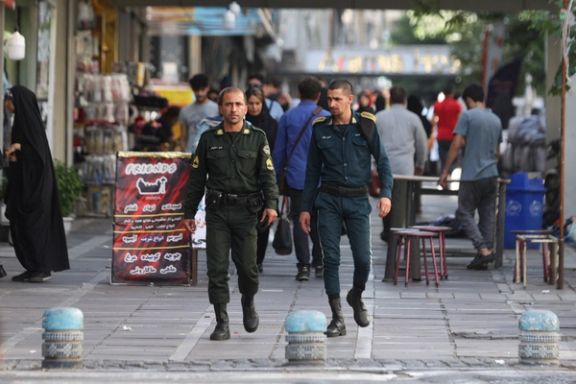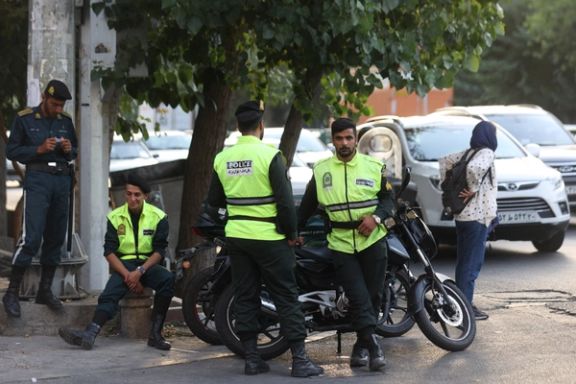Iranian Officials Are Passing The Buck Over Return Of Hijab Police

Days after Iran’s notorious hijab or ‘morality’ returned to streets, top officials refuse to take responsibility due to “concern over the upcoming elections".

Days after Iran’s notorious hijab or ‘morality’ returned to streets, top officials refuse to take responsibility due to “concern over the upcoming elections".
A public disagreement has arisen regarding who ordered the return of the 'morality' police, which vanished from the streets following nationwide protests sparked by the death of Mahsa Amini in the custody of hijab patrols last September.
According to Tehran's leading reformist daily, Etemad, President Ebrahim Raisi's aides have advised him against implementing any plan that could provoke people until after the next presidential election in 2025 to secure his re-election. They have even suggested indirect criticism of negative reactions to hijab violations to make a positive impression on public opinion.
However, Etemad cited an unnamed senior official of the police as saying that the hijab patrols have returned by the direct order of the president as the head of the Supreme National Security Council. The interior minister is only tasked with implementing the plan as the representative of the Supreme Leader Ali Khamenei in Law Enforcement Command.

The police official emphasized their role as the sole executor of orders from higher authorities within the government and the Interior Ministry, adding that officials shifted responsibility to the police force to shield themselves from potential criticism.
As the police blamed the presidential administration, several government officials claimed that the decision was not made by the president himself.
Ali Bahadori Jahormi, the government's spokesperson, emphasized in a twitter post that the judiciary is responsible for dealing with “social abnormalities," including civil disobedience acts like women defying the Islamic Republic's strict dress code. He stated, "It is the responsibility of the judiciary to decide how to implement the law." Vice President for Women and Family Affairs Ensieh Khazali also denied that the hijab patrols returned upon the president's order.
Tasnim news agency, affiliated with the Revolutionary Guard, claimed that after the publication of the official order by the president and the chief justice to reinstate the hijab police, certain government officials contacted the agency and asked them to remove the part mentioning the president.
The ultra-hardliner daily Kayhan expressed support for the police's approach in enforcing hijab regulations, warning officials against backing down from their stance merely in fear of losing “a handful of votes.”

The morality or hijab police returned to the streets of Tehran and other cities ahead of the first anniversary of Mahsa Amini's death, immediately leading to online uproar as well as a few bouts of street protests, the biggest of which broke out in the northern city of Rasht.
A video which went viral on Saturday shows Tehran's morality police arresting a teenage girl without compulsory hijab, while the girl was screaming “I’m not coming with you” as they tried to push her into their unmarked van.
People on social media have reacted to the incident saying if Iranians do not pour into the streets on the death anniversary of Amini in mid-September, the regime will tighten the noose.
Iran’s former president Mohammad Khatami also warned that the return of morality police may lead to the regime's “overthrow by itself and social collapse”. “It seems that the danger of self-overthrow, which has been talked about many times, stands out more than ever with the return of morality police."
In addition to street patrols, the regime has intensified its crackdown on celebrities who have published photos of themselves without mandatory hijab or appeared in public without head covering as an indirect threat against ordinary people.
Only this week, several actresses as well as TV and radio personalities have been given odd sentences, such as washing corpses for burial and attending counseling sessions as well as bans, as a humiliation and intimidation tactic.
Dadban, a group of pro-bono lawyers in Iran defending political prisoners and rights activists, also revealed that one of the regime’s judges in the capital Tehran – identified as Ali Omidi – has taken a prominent role in issuing heavy sentences against those who protest mandatory hijab.